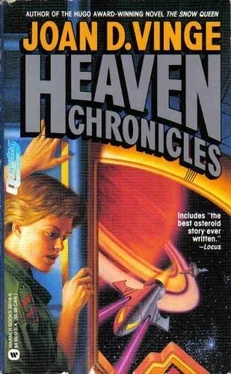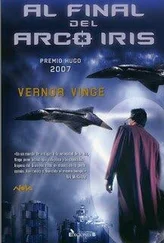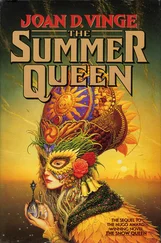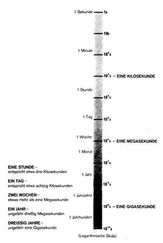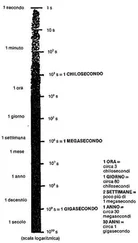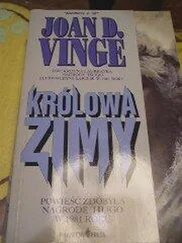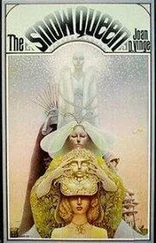“You have your own fusion power plant … you really could reproduce any part of this ship right here, couldn't you?”
“Theoretically. There are some I wouldn't want to try. This was a long trip; we had to be prepared for anything.” Except this.
“God! If Park and Osuna could only see this place.”
“Who?” Clewell removed the wood from a clamp.
“They're ‘engineers.’” Scorn lacerated the word.
“And what's wrong with engineers?” Betha folded her arms tightly against her stomach, raising her eyebrows.
“What's right with 'em?” Abdhiamal made an odd gesture. “They're a bunch of cannibals. They put patches on patches, tear, one thing apart and use the pieces to hold three more together, and then they tear apart one of those—”
“That sounds resourceful to me.”
“But they gloat about it! The think it's creation, but it's destruction. If they'd only read something, if only they had any imagination at all, they'd know what real creation is. The thing we could do, once … nobody did them better. But that's like askin' for life in a vacuum.”
“Or maybe you've just got your priorities wrong, Abdhiamal! What should they do, torture themselves over the past because relics are all they have left to work with? At least they're doing something for their people, not living at the expense of everyone else like some damned fop!” Betha jerked the piece of wood out of his hands, felt splinters cut her palm. She turned her back on his surprise, strode away through her echoing anger toward the door.
Clewell smiled at Abdhiamal's astonished face. “Abdhiamal, you just told it all to an engineer.”
Abdhiamal winced. “I should never have gotten out of bed … two megaseconds ago.” He stared out into the vastness of the empty room. “I always seem to say the wrong thing to … your wife. I thought she was a pilot.”
Clewell listened to Betha's footsteps fade as she climbed the stairs. He wondered what fresh burden she had brought with her from Mecca—that showed in her eyes and her every action, and that she could not share even with him. “She was an engineer on Morningside, before she was chosen to captain the Ranger . Parts of this ship are her design; she worked on its drive unit.” He saw surprise again in Abdhiamal's tawny eyes. “It's the first starship we've had the resources to build since before the Low.”
“Low?”
“Famine … emergency.” Memories of past hardship and suffering rose in him too easily, drawn by the fresh memory of loss. A bruising weariness made him settle against the table's edge. He set aside the wood; morbidly picturing his own body as ancient wood, storm-battered, decaying. He sighed. “On Morningside small changes in solar activity, perturbations in our orbit, can mean disaster. When I was a boy—in the last quarter of my tenth year—we went into a ‘hot spell’ …” He saw the darkside ice sheet withdrawing, shattered bergs clogging the waters of the Boreal Sea. The sea itself had risen half a meter, flooding vital coastal industries; the crops had rotted in the fields from too much rainfall. He had watched one of his fathers kill a litter of kittens because they had nothing to feed them. And he had cried, even though his own empty stomach ached with need. Still, after all these years … “It took years for the climate to stabilize, most of my lifetime before our own lives got back to ‘normal.’ We've entered a High, right now, and Uhuru's stabilized—they're our closest neighbor; this flight was planned to send them aid, originally. That's why we took a chance on risking the Ranger to come here to Heaven.” He felt the cutting edge of wind over snow on the darkside glacier, where the sky glittered with stars like splintered ice. “That's why we can't afford to stay here. Even if we go back to Morningside empty-handed, at least they'll have the ship.”
Abdhiamal nodded. “I see. I told—your wife, Captain Torgussen, that I'm willing to do all I can to help you get back to Morningside—for Heaven's own good. The way things seem to be goin', your remaining here is goin' to tear Heaven apart, not pull it back together again.…” For a moment Clewell was reminded of someone, but the image slipped away.
He considered Abdhiamal's words, surprised—more surprised to find that he believed them. Have we found an honest man?
“Together we find courage,
Our song will never cease”
“What's that?” Abdhiamal said.
“Bird Alyn.” Clewell heard the faint, halting music rise from the hydroponics lab. “Betha taught her some chords on the guitar; I taught her a few more songs, while we were—waiting.” He heard Bird Alyn strike a sour note as she strummed. “I don't know if Claire would have approved, but the plants seem to appreciate her sincerity.” He smiled. “It's not what you sing, or how, but how the singing makes you feel.”
Abdhiamal smiled politely. His glance touched the scarred surface of the table, the floor, searched the room again; the smile grew taut. “You know, I sometimes have the strange feeling that I'm livin' in a dream; that somehow I've forgotten how to wake myself up.” A trace of desperation edged into his voice.
“Bird Alyn said the same thing to me. Except that I think she meant it.”
“Comin' from the Main Belt, she probably did.… Maybe I do too.” Abdhiamal cleared his throat, an oddly embarrassed sound. “Welkin, I'd like to ask you a personal question. If you don't mind.”
Clewell laughed. “At my age I don't have much to hide. Go ahead.”
Abdhiamal paused. “Do you find it—hard to take orders from your wife?”
Clewell straightened away from the table. “Why should that make a difference to me?”
Abdhiamal looked at him strangely. “Frankly I never met a woman I'd trust to make my decisions for me.”
Clewell remembered what he had seen on the monitors of Demarchy society, saw why it might make a difference to Abdhiamal. “Betha Torgussen was chosen to command the Ranger because she was the best qualified, and the best at making decisions. We all agreed to the choice.” He tightened the jaws of a table clamp, not sure whether he was amused or annoyed. “Answer a personal question for me: What exactly do you think of my wife?” He watched an instinctive reaction rise up and die away before it reached Abdhiamal's lips. An honest man …
“I don't know.” Abdhiamal frowned slightly, at nothing, at himself. “But I have to admit, she's made better decisions since I've known her than I have.” He laughed once, looking away. “But then she chose space, instead of …” His eyes came back to Clewell; the frown and confusion filled them again.
“Why doesn't the Demarchy have women in space? My impression of Belter life was always that everyone did as they damn well pleased. Men and women.”
“Before the war, maybe. But now we have to protect our women.”
“From what? Living?” Clewell picked up the piece of wood, shifted it from hand to hand, annoyance overriding amusement now.
“From radiation!” It was the first time he had heard Abdhiamal raise his voice. “From genetic damage. The fission units that power our ships and factories are just too dirty. In spite of everythin' we've done, the number of defective births is twenty times as high as it was before the war.”
Clewell thought of Bird Alyn. “What about men?”
“We can preserve sperm. Not ova.”
“You've lost more than you know because of that war.” Abdhiamal stood silently, expressionless. Clewell unstrapped the leather wristband that had been a parting gift from one of his sons, and held it out. “Do you recognize that symbol?” He pointed at the design enameled on a circle of copper, as Abdhiamal took it from his hand.
Читать дальше
